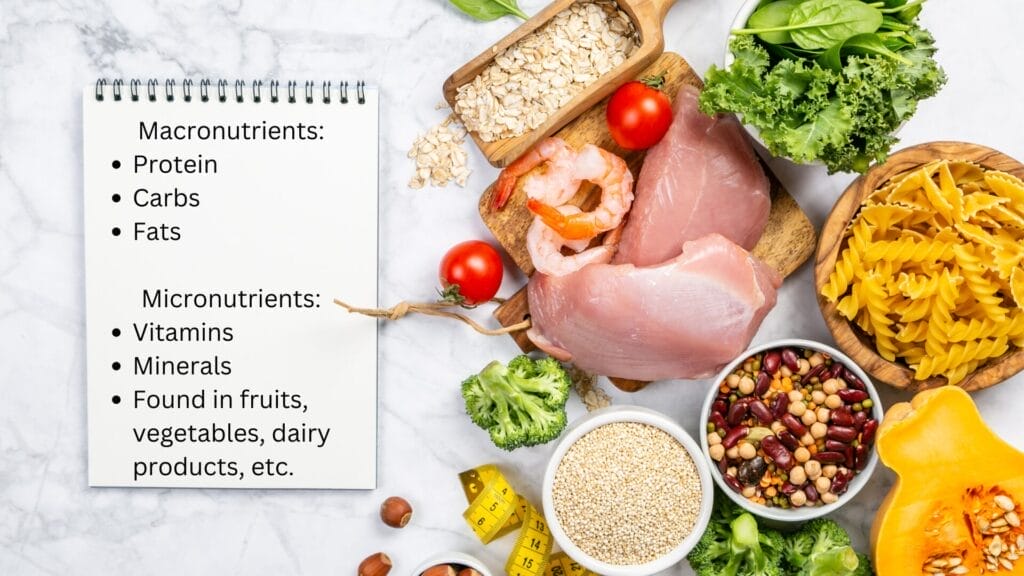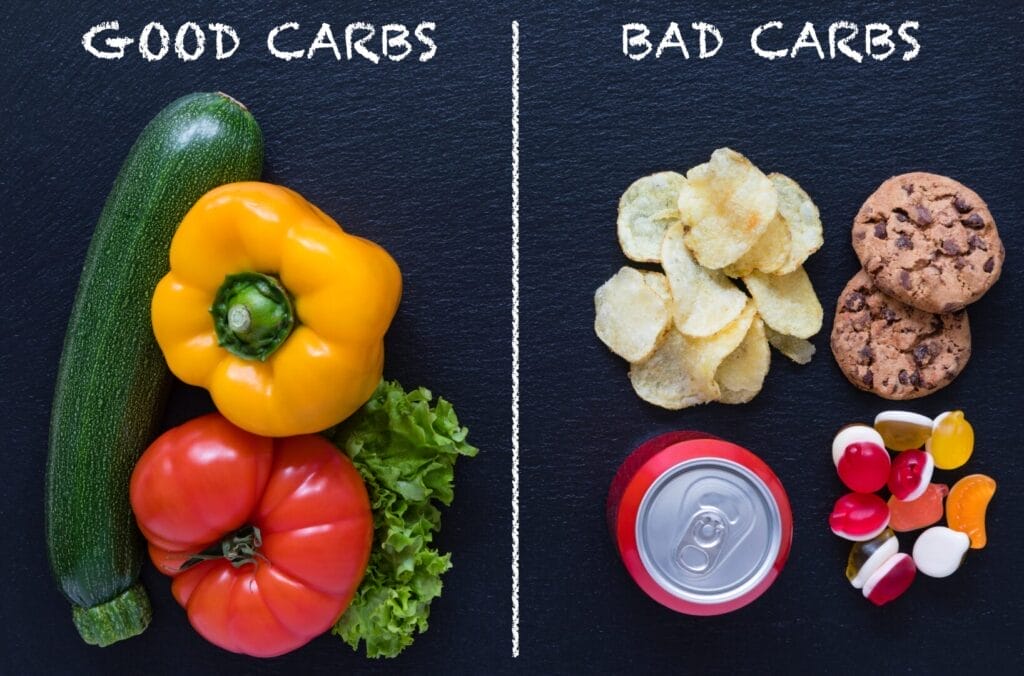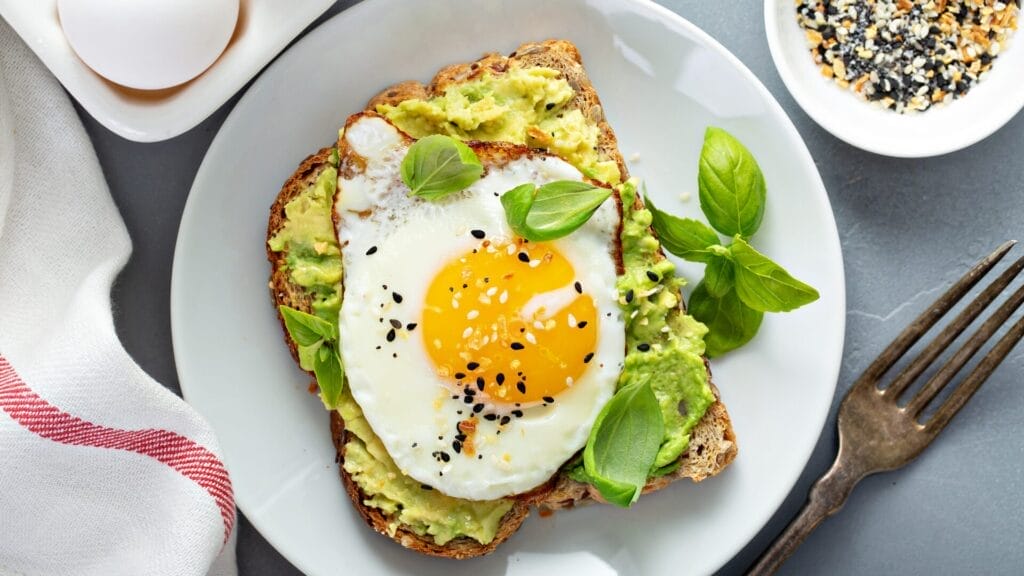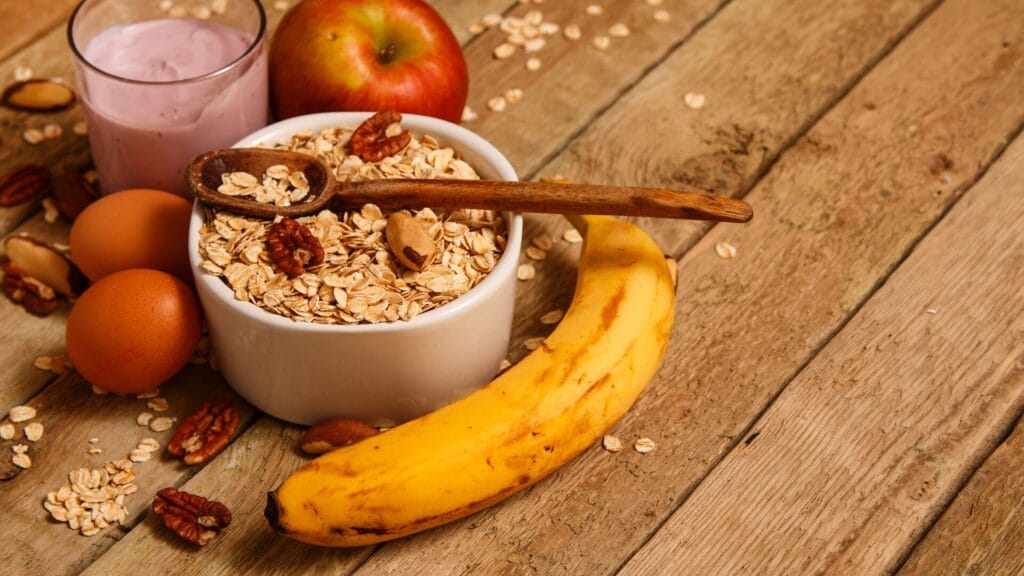Breakfast is often touted as the most important meal of the day, and for good reason. A nutrient-dense breakfast can set the tone for your entire day, providing the necessary fuel to kickstart your metabolism and maintain high energy levels. This article delves into the significance of a healthy breakfast, exploring the components that make up a nutritious morning meal and offering practical tips and recipes to help you incorporate these elements into your daily routine.
Table of Contents
Why a Healthy Breakfast Matters
Physical Health Benefits
Starting your day with a nutritious breakfast has numerous physical health benefits. It replenishes your body’s glucose supply, boosting your energy and alertness levels. A healthy breakfast also provides essential nutrients that are critical for overall health, such as vitamins, minerals, and fiber. Regular consumption of a nutrient-dense breakfast has been linked to a lower risk of chronic diseases, including heart disease, diabetes, and obesity.
Mental Health Benefits
Beyond physical health, a nutritious breakfast has a profound impact on mental well-being. Eating a balanced breakfast can improve concentration, memory, and cognitive function. It stabilizes blood sugar levels, preventing the mood swings and irritability often associated with mid-morning hunger. Studies have shown that individuals who consume a healthy breakfast are generally happier and less stressed throughout the day.
Components of a Nutrient-Dense Breakfast
Macronutrients
A well-rounded breakfast should include all three macronutrients: proteins, carbohydrates, and fats. Each macronutrient plays a vital role in maintaining energy levels and overall health.
Micronutrients
Vitamins and minerals are equally important. Key micronutrients such as vitamins B and C, calcium, iron, and magnesium support various bodily functions, including the immune system, bone health, and energy metabolism.

Hydration
Hydration is often overlooked, but it’s crucial to start your day properly hydrated. Drinking water in the morning helps kickstart your metabolism and supports all bodily functions.
The Role of Proteins
Importance of Proteins
Proteins are the building blocks of the body, essential for growth, repair, and maintenance of tissues. A protein-rich breakfast helps in muscle recovery and growth, making it especially important for active individuals.
Sources of Proteins
Excellent sources of protein include eggs, Greek yogurt, lean meats, nuts, seeds, and legumes. Incorporating these into your breakfast ensures a good start to your day.
The Importance of Carbohydrates
Good Carbs vs. Bad Carbs
Carbohydrates are the body’s primary energy source. However, not all carbs are created equal. Complex carbohydrates, found in whole grains, fruits, and vegetables, are digested slowly, providing sustained energy. In contrast, simple carbs, found in sugary cereals and pastries, can lead to quick spikes and drops in blood sugar levels.

Role in Energy Levels
Consuming complex carbohydrates in the morning ensures that you have a steady supply of energy throughout the day, avoiding the mid-morning slump.
Healthy Fats for Sustained Energy
Types of Healthy Fats
Healthy fats, such as those found in avocados, nuts, seeds, and olive oil, are essential for brain health and hormone production. They also provide a slow-release energy source, helping you feel full longer.
Benefits of Healthy Fats
Including healthy fats in your breakfast can improve satiety, enhance nutrient absorption, and support overall heart health.
Vitamins and Minerals
Essential Vitamins
Vitamins such as A, C, D, and E play crucial roles in maintaining skin health, immune function, and bone strength. Incorporating a variety of fruits and vegetables into your breakfast can help meet your daily vitamin needs.
Important Minerals
Minerals like calcium, iron, and magnesium are essential for bone health, oxygen transport, and muscle function. Dairy products, leafy greens, and nuts are excellent sources of these minerals.
Hydration in the Morning
Importance of Hydration
Starting your day with a glass of water is vital for rehydrating your body after a night of sleep. Proper hydration aids in digestion, circulation, and temperature regulation.
Hydration Tips
Consider drinking a glass of water with lemon and mint or herbal tea in the morning to enhance hydration. Avoid sugary drinks, which can lead to energy crashes later in the day.

Top Healthy Breakfast Options
Quick and Easy Recipes
- Overnight Oats: Combine oats, chia seeds, almond milk, and fresh berries in a jar. Refrigerate overnight for a quick, nutritious breakfast.
- Greek Yogurt Parfait: Layer Greek yogurt with granola, honey, and mixed fruits for a balanced and delicious start to your day.
Meal Prep Ideas
- Egg Muffins: Whisk eggs with chopped vegetables and bake in muffin tins. Store in the fridge for a quick grab-and-go option.
- Smoothie Packs: Pre-pack smoothie ingredients (fruits, spinach, protein powder) in freezer bags. In the morning, just blend with a liquid of your choice.
Oatmeal: A Superfood Breakfast
Nutritional Benefits
Oatmeal is rich in fiber, particularly beta-glucan, which helps lower cholesterol levels and promotes heart health. It is also a good source of essential vitamins and minerals.
Creative Oatmeal Recipes
- Savory Oatmeal: Cook oats with vegetable broth, top with a poached egg, avocado slices, and sriracha for a savory twist.
- Berry Almond Oatmeal: Mix cooked oats with fresh berries, almond butter, and a drizzle of honey.
Smoothies: A Power-Packed Start
Benefits of Smoothies
Smoothies are a great way to pack a lot of nutrients into a single meal. They are versatile, quick to make, and easy to digest, making them an excellent option for busy mornings.
Balanced Smoothie Recipes
- Green Power Smoothie: Blend spinach, kale, banana, almond milk, and a scoop of protein powder.
- Berry Blast Smoothie: Combine mixed berries, Greek yogurt, chia seeds, and a splash of orange juice.
Egg-Based Breakfasts
Protein-Packed Options
Eggs are incredibly versatile and packed with high-quality protein. They can be prepared in various ways to keep breakfast interesting and nutritious.
Delicious Egg Recipes
- Veggie Omelette: Fill an omelette with your favorite vegetables, cheese, and herbs for a wholesome meal.
- Egg and Avocado Toast: Top whole-grain toast with mashed avocado and a poached egg for a quick and satisfying breakfast.

Incorporating Fruits and Vegetables
Importance of Fruits and Vegetables
Fruits and vegetables are rich in vitamins, minerals, and antioxidants. Including them in your breakfast can boost your nutrient intake and improve overall health.
Creative Ways to Include Them
- Fruit Salad: Mix a variety of fruits such as berries, kiwi, and pineapple for a refreshing and nutritious side dish.
- Veggie Smoothies: Add vegetables like spinach or carrots to your smoothies for an extra nutrient boost.
Whole Grains for a Balanced Diet
Benefits of Whole Grains
Whole grains are a good source of fiber, which aids in digestion and helps maintain stable blood sugar levels. They also provide essential nutrients like iron, magnesium, and B vitamins.
Whole Grain Breakfast Ideas
- Quinoa Breakfast Bowl: Combine cooked quinoa with fresh fruit, nuts, and a drizzle of maple syrup.
- Whole Grain Pancakes: Make pancakes using whole grain flour and top with fresh berries and a dollop of Greek yogurt.
Avoiding Unhealthy Breakfast Choices
Common Unhealthy Breakfast Foods
Many popular breakfast options, such as sugary cereals, pastries, and processed meats, can be detrimental to health. These foods often lack essential nutrients and are high in sugars and unhealthy fats.
Healthier Alternatives
Opt for whole foods like oatmeal, fresh fruit, eggs, and whole grain toast. These alternatives provide more nutrients and promote sustained energy levels.

The Link Between Breakfast and Weight Management
How Breakfast Affects Metabolism
Eating a healthy breakfast can boost your metabolism, helping your body burn calories more efficiently throughout the day. Skipping breakfast, on the other hand, can slow down metabolism and lead to weight gain.
Breakfast Tips for Weight Control
Choose high-fiber, protein-rich foods to keep you full longer and prevent overeating later in the day. Avoid high-sugar breakfast items that can cause energy crashes and cravings.
Breakfast for Kids: Building Healthy Habits
Importance for Children
A nutritious breakfast is crucial for children as it supports growth, development, and academic performance. Kids who eat a healthy breakfast are more likely to have better concentration and energy levels at school.
Kid-Friendly Breakfast Ideas
- Fruit and Yogurt Parfait: Layer Greek yogurt with granola and fresh fruit for a fun and nutritious meal.
- Whole Grain Waffles: Serve whole grain waffles with a side of fresh fruit and a dollop of natural peanut butter.
Cultural Perspectives on Breakfast
Traditional Breakfasts Around the World
Different cultures have unique breakfast traditions that offer valuable nutritional insights. Exploring these diverse breakfasts can inspire new and healthy options for your morning meal.
Nutritional Insights from Different Cultures
- Japanese Breakfast: A typical breakfast might include rice, miso soup, fish, and pickled vegetables, providing a balanced mix of protein, carbs, and healthy fats.
- Mediterranean Breakfast: Common elements include whole grain bread, olives, cheese, and fresh vegetables, highlighting the benefits of a plant-based diet.
Myths and Facts About Breakfast
Common Breakfast Myths
There are many misconceptions about breakfast, such as the belief that skipping it can help with weight loss or that all breakfast foods are healthy.
Evidence-Based Facts
Research shows that eating breakfast is associated with better overall health, improved cognitive function, and more effective weight management. A balanced breakfast is key to reaping these benefits.

FAQs about Healthy Breakfast
Is skipping breakfast bad for you?
Skipping breakfast can lead to decreased energy levels, poor concentration, and increased cravings later in the day. It’s generally recommended to eat a balanced breakfast to kickstart your metabolism and maintain stable energy levels.
What are some quick and healthy breakfast options?
Quick and healthy options include overnight oats, Greek yogurt with fruit, smoothie packs, and whole grain toast with avocado and eggs. These meals are easy to prepare and provide essential nutrients.
Can a healthy breakfast help with weight loss?
Yes, a nutritious breakfast can aid in weight loss by boosting metabolism, reducing hunger, and preventing overeating later in the day. Choosing high-fiber, protein-rich foods can help you feel full longer.
What are some good sources of protein for breakfast?
Good sources of protein include eggs, Greek yogurt, lean meats, nuts, seeds, and legumes. Incorporating these into your breakfast can help you meet your daily protein needs.
How can I include more fruits and vegetables in my breakfast?
Add fruits to your yogurt, oatmeal, or smoothies. Include vegetables in omelettes, breakfast burritos, or green smoothies. These strategies can increase your intake of essential vitamins and minerals.
What are the benefits of eating whole grains for breakfast?
Whole grains are rich in fiber, which aids in digestion and helps maintain stable blood sugar levels. They also provide essential nutrients like iron, magnesium, and B vitamins, contributing to overall health.
Conclusion
Incorporating a nutrient-dense breakfast into your daily routine is a powerful way to boost your energy, improve your health, and enhance your overall well-being. By focusing on a balanced intake of macronutrients and micronutrients, staying hydrated, and choosing whole foods, you can set yourself up for a productive and positive day. Embrace the variety of healthy breakfast options available, and enjoy the benefits of starting your day with the right fuel.







